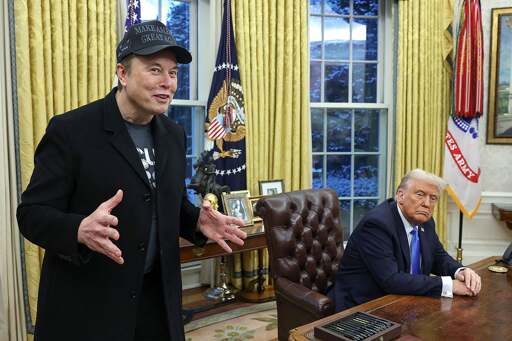In the past week or so, the courts have begun to try to set some boundaries on the Musk–Miller–Trump administration’s early blitz of recklessness.
. . .
This judicial review provides at least a small reprieve, hope that some of the administration’s most destructive impulses will be stopped. Or at least pared back. But even with the courts stepping up, and even with the reality of the administration’s ineptitude sinking in, this early Musk–Miller–Trump blitz remains very—maybe irreparably—damaging. Of course, there are a lot of moles to whack: the U.S. Agency for International Development and the Consumer Financial Protection Bureau are being dismantled at an alarming rate, and the court system is not known for being nimble. The administration is betting, perhaps rightly, that at least some of its thoughtless, lawless efforts will slip through the cracks.
But even if the courts caught them all—and even if every court facing each lawless escapade said, “Nope, that’s not a thing”—still the entire process would be doing serious damage to our institutions. Think of it as someone spoofing your identity and going on a shopping spree with your credit cards. Even if the goon gets caught, you still have to go store by store to argue that the fraudulent purchase wasn’t legitimate and hope the debt is forgiven. And all the while, perhaps long after all the debts are dealt with, the torrent of uncertainty kills your credit score.



Let’s all stop paying federal taxes
Doing only that would just give them more fodder to complain about a deficit. Mass violent resistance is just an excuse for crackdowns and martial law.
One interesting and simple idea I’ve seen is just opting out of the consumer economy. Americans in any socioeconomic strata can just stop buying anything but the bare minimum.
General strikes are effective but hard to coordinate and maintain, most people can’t risk skipping a paycheck. But anyone can switch to beans and rice, cancel subscriptions, learn to repair their own clothes, buy a phone second hand, etc… Since a massive portion of our economy is driven by that spending (68% of our GDP) it would definitely hurt, but they couldn’t ignore it.
It’s easy to do and doesn’t have an outsized impact on poor or at risk groups, and it’s not all or nothing so any way you can cut helps. I wonder how they’d react to 200 million people on an economic hunger strike…
What could possibly go wrong?